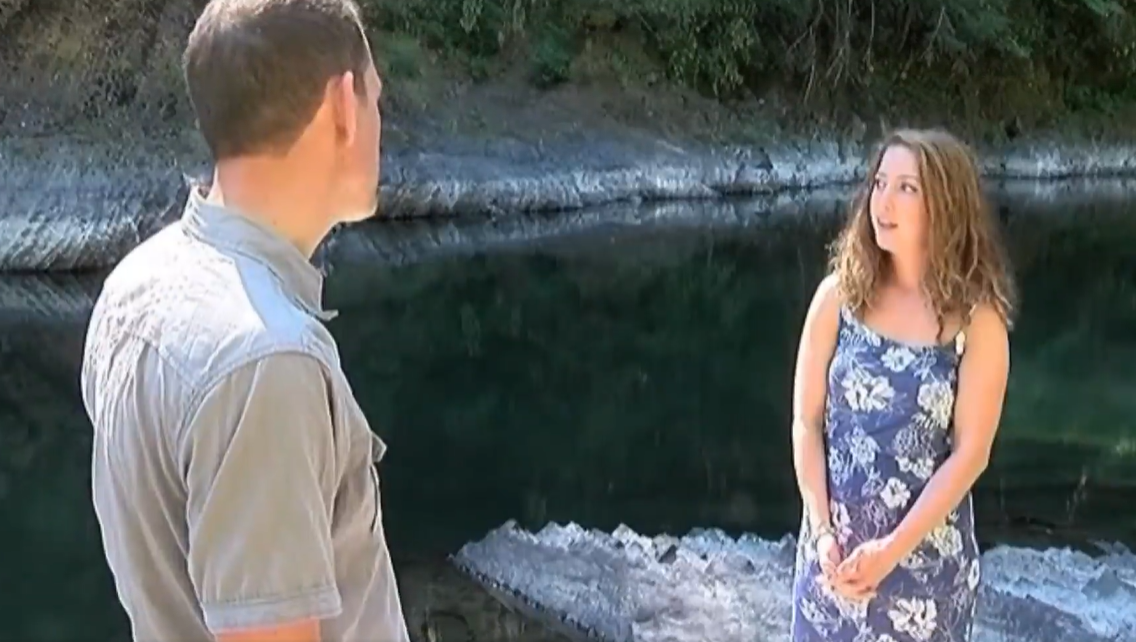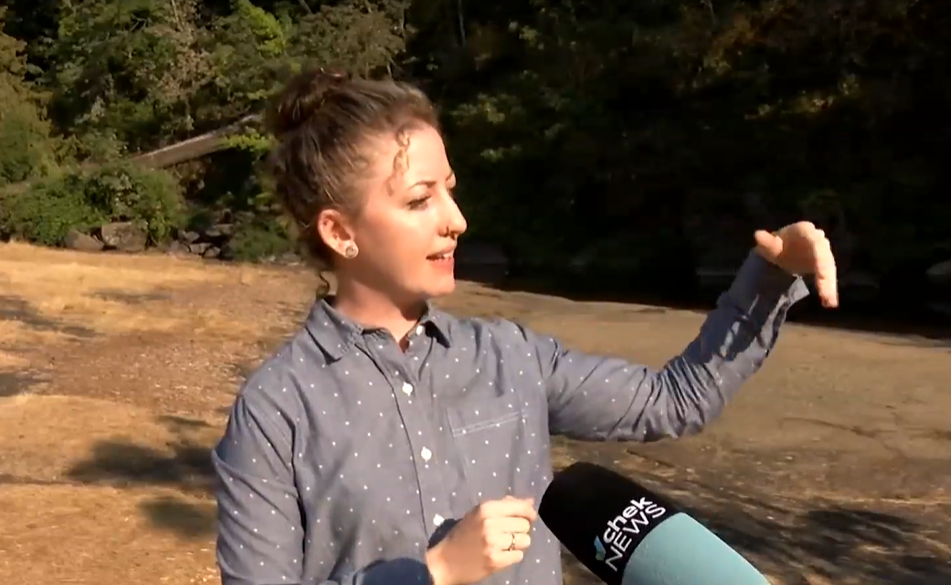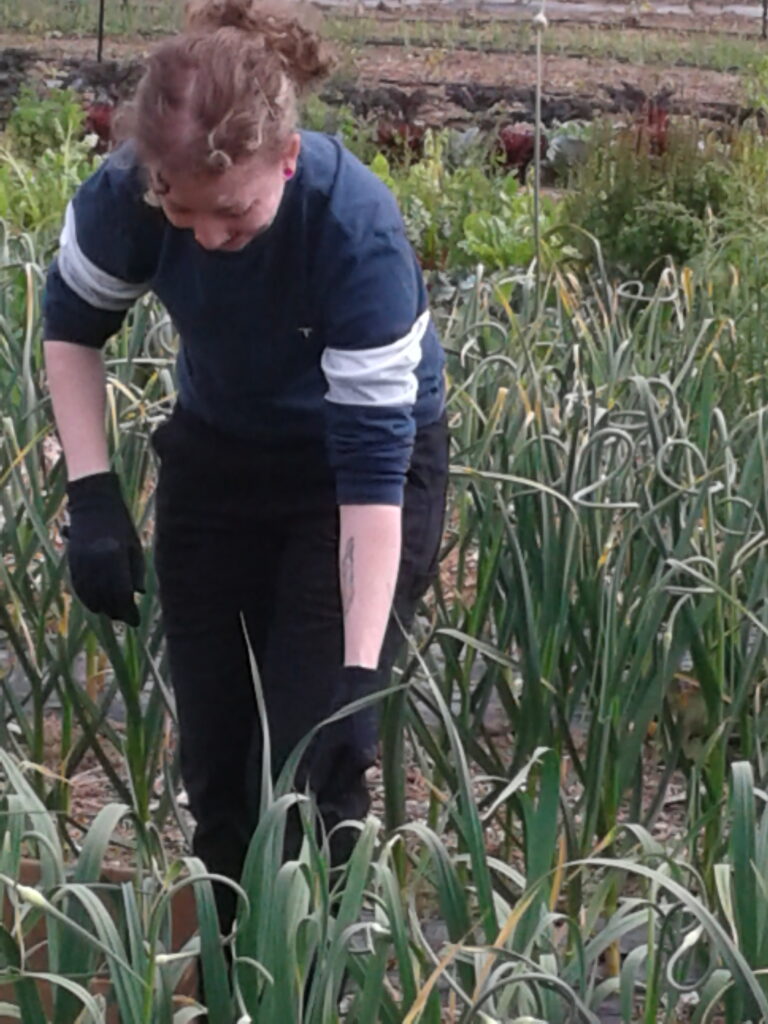Introduction
About Me
My name is Stephanie Bonnar; I am a first-generation Canadian of English, Scottish and Irish descent. My parents were both born in England but would meet in Ontario. Fast forward thirty years, and I now gratefully reside on the traditional territory of the Snunyemeux First Nation. I was born in Ottawa, on traditional Anishinabe Algonquin territory. My family moved to Abbotsford, the unceded, traditional territory of the Semá:th First Nation and Mathekwi First Nation when I was only a year old. We lived in Abbotsford until I was eight years old, which is when we made our final family move to Vancouver Island to the unceded, traditional territory of the Qwut’usun peoples, also known as the People of the Warm Land.
I work for Island Health as an Administrative Clerk for Geriatric Specialty Services while completing full-time studies in my fourth year of the Bachelor of Social Work at Vancouver Island University. I have had many careers in my life, including working in retail, sterilizing surgical instruments, delivering cabinets and auto parts, completing pre-tests for optometrist appointments and dabbling in autobody work. I even briefly worked at a 7/11 in Mackenzie on the traditional land of the Mcleod Lake Indian Band. It took me a while to find my way into social work, but I believe my work experiences have strengthened my communication skills with various audiences and provided me with rich life experience to combine with my continuing social work education. Who knows, maybe there is demand for social workers who also have an air brakes ticket!
I volunteer for the Canadian Mental Health Association [CMHA], Nanaimo Community Hospice and the Cowichan Therapeutic Riding Association [CTRA]. With Nanaimo Hospice, I volunteer in the Palliative Care Unit, and I am one of the rotating facilitators of the Traumatic Loss Group; with CTRA, I am a horse handler during riding lessons. I am in more of an on-call role with the CMHA. I used to be a fundraising committee member, but I now assist with fundraising drives and events.
I enjoy each of my volunteer roles, but being a horse handler allows me to see the value of a strengths-based approach in every session. Depending on the rider’s comfort and ability, I will either guide the horse from the ground based on the instructor’s directions or I will walk alongside the horse in a supportive role while the rider guides them. Riding horses can be intimidating, so even if the rider is controlling the horse, they may look to the handler for guidance. I usually make a bit of a show of “helping” them, but then after they have successfully completed the maneuver, I let on that I may not have been helping as much as they thought, and they completed it all by themselves! Similar to when a parent is teaching a kid to ride their bike, and they let go of the bike well before the child catches on. Of course, my biggest priority is safety, so I do so only when appropriate, but the horses have been specially trained for this role and are steadfast in their commitment to look after their riders. It is really heartwarming to see the riders beam with pride when they realize they are controlling the horses by themselves. This confidence translates into other areas of their lives and reminds them of how capable and talented they truly are. Horseback riding can actually be modified for accessibility more than one might expect, and I have had the opportunity to work with a diverse group of riders and horses!
I am also an advocate and have spent years lobbying for increased signage on the Cowichan River due to the accidents on the stretch known as Marie Canyon. I have learned that policy change cannot result without power shifts; the general public must often build their people-power, capacities and resources to challenge elite groups (Unsicker, 2012). This experience has taught me the value of networking because I started this work alone and felt like I kept hitting dead ends in my attempts to raise awareness. It was not until I approached the issue through the lens of my social work education that I began to contact organizations with similar goals to work alongside me, and I saw positive changes begin. I will remember the power of networking when working with service users to access resources and supports.
Pictured Below: Reference letters regarding my volunteer work with the CMHA and CTRA


Pictured Below: Screenshots from two of the three interviews I have completed regarding the Cowichan River. I completed an interview with Chek News (image one) and CTV News in 2017 and a second Chek News interview in 2022 (image two).


I have also been interviewed for the blog Six Mountains by environmental journalist Larry Pynn and the Times Colonist. I have sent countless emails to BC Parks and the CVRD and involved organizations such as the Cowichan Search and Rescue, the Tube Shack and the Life Saving Society in my work. This is where I have seen the value of networking and gathering support from the community. In my Times Colonist interview, they were able to interview Dale Miller, who has since retired but was the Executive Director for the BC and Yukon Life Saving Society and a wealth of knowledge on river safety and previous water safety movements. I had previous discussions with him, and he had offered his support in my campaign for increased signage; I was very grateful he participated in an interview.
Six Mountains: https://www.sixmountains.ca/article/c20f0859-4358-4b14-9a3d-8e1a35a01f7b Times Colonist Article: https://www.timescolonist.com/local-news/having-a-fun-day-shouldnt-be-what-ends-your-life-5777933
Portfolio Purpose
The purpose of this portfolio will be to share the unique lens I bring to social work by exploring my values, how my values relate to social work, my unique knowledge, the theoretical frameworks that I feel drawn to, the social work skills and the competencies that I possess at the micro, mezzo and macro levels. I will conclude the e-portfolio by discussing my readiness for practice by identifying areas of growth, defining Anti-Oppressive Practice [AOP] and my readiness to engage using that lens, ongoing professional development needs and how I am hoping to engage with challenges in the world of work by being a change agent.
This portfolio is beneficial to my growth as a future social worker because reflecting on my values, knowledge, and competencies will sharpen my ability to reflect and practice self-awareness. Social work is a field that requires constant growth and reflection on our skills and biases. If a social worker feels “safe” that they are already an exceptional social worker, then they are not; social workers must reflect on their practice and aim to develop their knowledge and skills continuously (Beesley et al., 2018).
Additionally, this portfolio gives me a space to document my achievements and provides a snapshot in time of my developing practice. I can continue to add to this portfolio or look back on it in a few years to see which areas I have gained further confidence in. It can be challenging to remember certain details at different times in our lives, so this portfolio feels like a personal time capsule that I can refer back to as I grow my future practice.
Social Work Purpose
To me, the purpose of social work is empowerment. Empowerment should guide every interaction we have with our service users. An empowerment lens believes that personal, interpersonal, and structural change can occur when service users have decision-making power over the issues affecting their lives and are able to exercise individual and collective power to challenge social and personal barriers at a personal and political level (Finn, 2021).
Empowerment in social work can take forms such as helping service users navigate systems, developing the strengths and skills needed to advocate and navigate these systems for themselves, educating service users and other service providers and engaging authentically (Mullaly & West, 2018). It is important to remember that empowerment is not only reserved for our clients; it is crucial that we seek to empower ourselves as well. If we believe in our ability and that we can inspire change, it will happen!
In my future practice, I will contribute to empowerment in social work by using a strengths-based approach and recognizing the value of collaborating with my service users. They are the expert in their lived experience and what an ideal outcome is for them. My work as a social worker will be to support them in recognizing and accomplishing this. I can empower myself and service users to name and recognize barriers and how we may work together to mitigate these. I can advocate for change at a policy level and empower my service users to add their voices to the conversation. When engaging with service users, I can create safe spaces by being present, fair, welcoming, non-judgemental, honest, and respectful and showing genuine care and concern (Mullaly & West, 2018).
Pictured below: Pulling garlic at Kline Farm with participants from Nanaimo Foodshare’s Cultivating Abilities Employment Program. I enjoyed this position because we often worked alongside participants. I felt like this helped mitigate the power imbalances and allowed us to learn about participants by having genuine conversations outside of our usual workshops and job search time.

Conclusion
In this introduction page, I have introduced myself, the purpose of this portfolio and my interpretation of the purpose of social work. In doing so, the reader receives a brief glimpse into my social location and values by introducing some of my current experiences and how I define the purpose of social work. I will further explore my social location and values in this portfolio, but the introduction has served to inform the reader of what to expect as they navigate this platform.